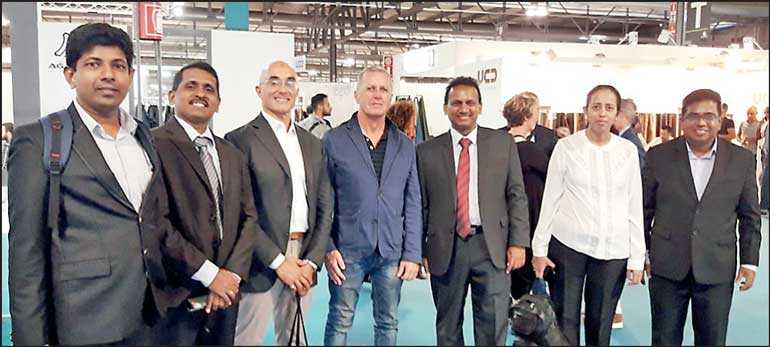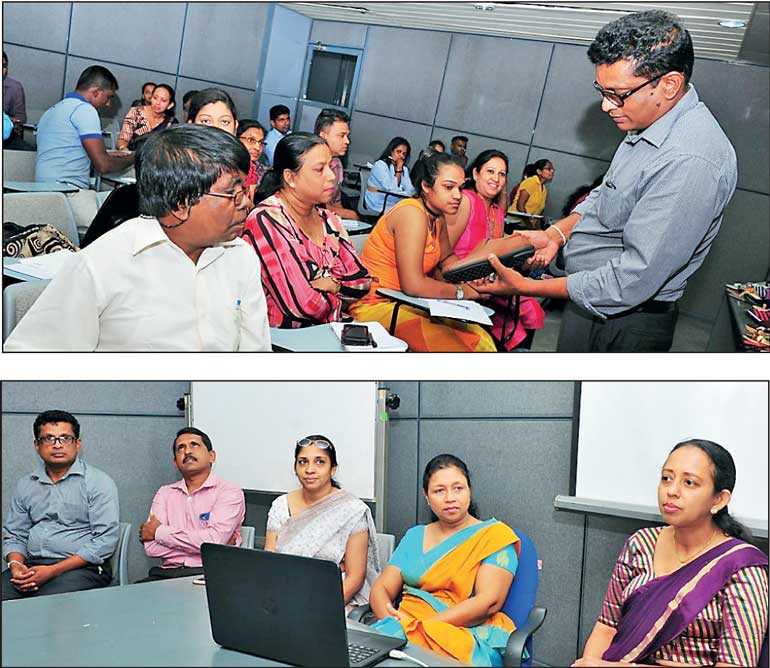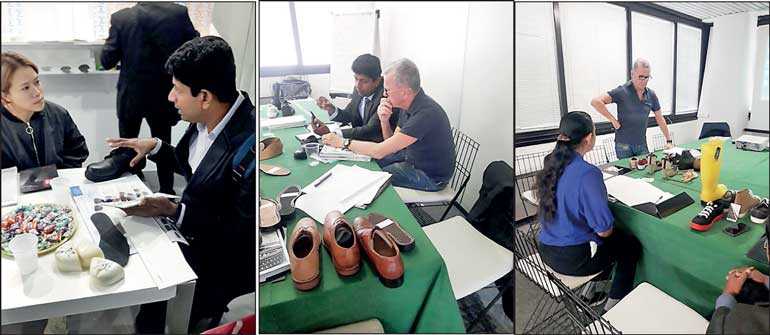Friday Feb 27, 2026
Friday Feb 27, 2026
Thursday, 27 December 2018 01:39 - - {{hitsCtrl.values.hits}}



The footwear and leather sector has been identified as a potential sector by way of creating employment opportunities and earning and saving foreign exchange earnings. Since the local market is limited, exports are essential for the sustainability of the industry. This industry clearly has a significant potential for being a key contributor to the economy of the country, if empowered by appropriate support and guidance.
At present the footwear and leather industry and its supporting industries including marketing chain employs around 250,000 people directly and indirectly. Sri Lanka’s exports of this sector was $ 131.38 million and exports to EU was $ 38.52 million in 2017.
There is an urgent need to upgrade the industry in terms of quality and technology in order to compete in the international market to avail the benefits of the international trading arrangements. Also there is a huge potential to connect to the Global Value Chain of footwear manufacturing by producing certain components.
Inferior quality of shoes is one of the major barriers to promote Sri Lankan products in the international market. The main reason for this is the lack of knowledge of the Sri Lankan manufacturers on shoe engineering and shoe designing mainly due to the non-availability of a proper mechanism and institutions to provide appropriate knowledge to local manufacturers. Therefore, strategies have to be developed to provide this knowledge to the industry, which is vital in improving the quality of the product to international standards.
Taking into consideration the above the EDB embarked on a Product Development Program to enhance the product quality of a selected group of footwear manufacturers/exporters by providing experts knowledge on shoe technology, targeting the international market, especially EU, UK and USA.
The program was implemented in two stages in 2017/18 and during the first stage, the experts worked with six selected companies individually to provide knowhow on product development with special emphasis on shoe engineering and make recommendations for upgradation of product and production processes. Areas covered by the experts during this stage included knowledge on regulations, knowledge on sizing system, product and process improvements, importance of having a collection of products already defined to present to customers, product price calculations, the importance of confirmation of samples of approved which is the keystone of commercial relations between the customers and factory, following customer guidelines, how to handle final inspections with external laboratories, communication channels, defining and improving the quality levels of the products, improving the company organisational structure.
A gap of six months was given for participating companies to do product and production process upgradations based on the recommendations of the experts. The EDB and the experts closely monitored the progress and once the companies completed the suggested recommendations, the second stage of the Product Development Program commenced. During this stage the companies were further advised to develop a technically specified and improved product line to suit the international market. Also the participants were advised in solving problems which they may encounter in implementing suggested modifications in their products to meet the international standards.
As a follow up recommended by the experts, EDB in collaboration with M/s Modainpelle Academy in in Milan and Sri Lanka Embassy in Italy organised a Market Exposure Program in Italy. Four participants of the Product Development Program participated in this program. The exposure program included a half day seminar on fashion designing and trends forecast presented by marketing expert form Modainpelle Academy. The experts also advised individual companies on the samples developed and the suitability of the products for the EU market in terms of colour, material, design, shapes, etc.
Ceylon Leather Products, Selakta International, Kavin Polymers and Oleema Industries participated in the exposure program. Factory Manager of the Ceylon Leather Products was of the view that the exposure program was a great opportunity to gain knowledge on latest technology in the world and understand the market dynamics. Managing Director Oleema Industries Ltd., which is producing safety boots and converse shoes stated that although the price of these products has dropped due to competitiveness in the international market they have been able to be competitive as the designs, quality of products and productivity was high as they have made maximum use of the opportunities given by the EDB. During this program they have been able to explore market opportunities in the EU market. Managing Director Kavin Polymers Ltd. said, “European fashion trends, quality standards and market levels were very useful information for me, as we do not get regularly exposed to such trends.”
EDB works with all segments of manufacturers i.e. exporters, potential exporters and SMEs. The knowledge gathered by exporters and potential exporters from the Product and Market Development programs implemented by the EDB are shared with SMEs in order to develop them to be export ready.
In the above context, EDB organised a knowledge sharing session fora selected group of fifteen footwear manufacturers registered under the 2000 Exporter Programme and Women Entrepreneur Development Programs implemented by the EDB. The program was held at EDB on 10 December. The participants of the above Product Development Programs presented insights gathered by them with the SMEs and it was a good learning curve for the SMEs.